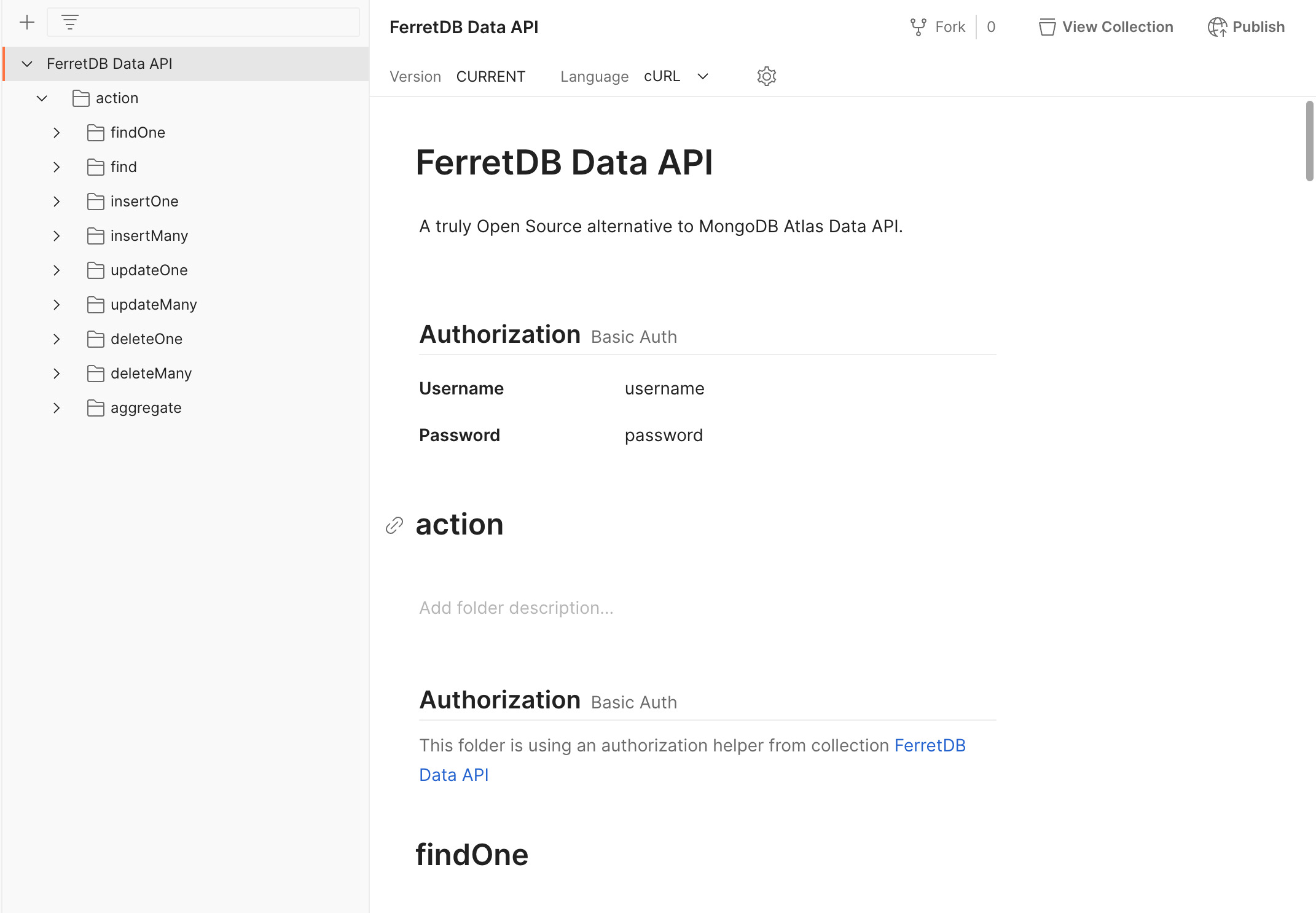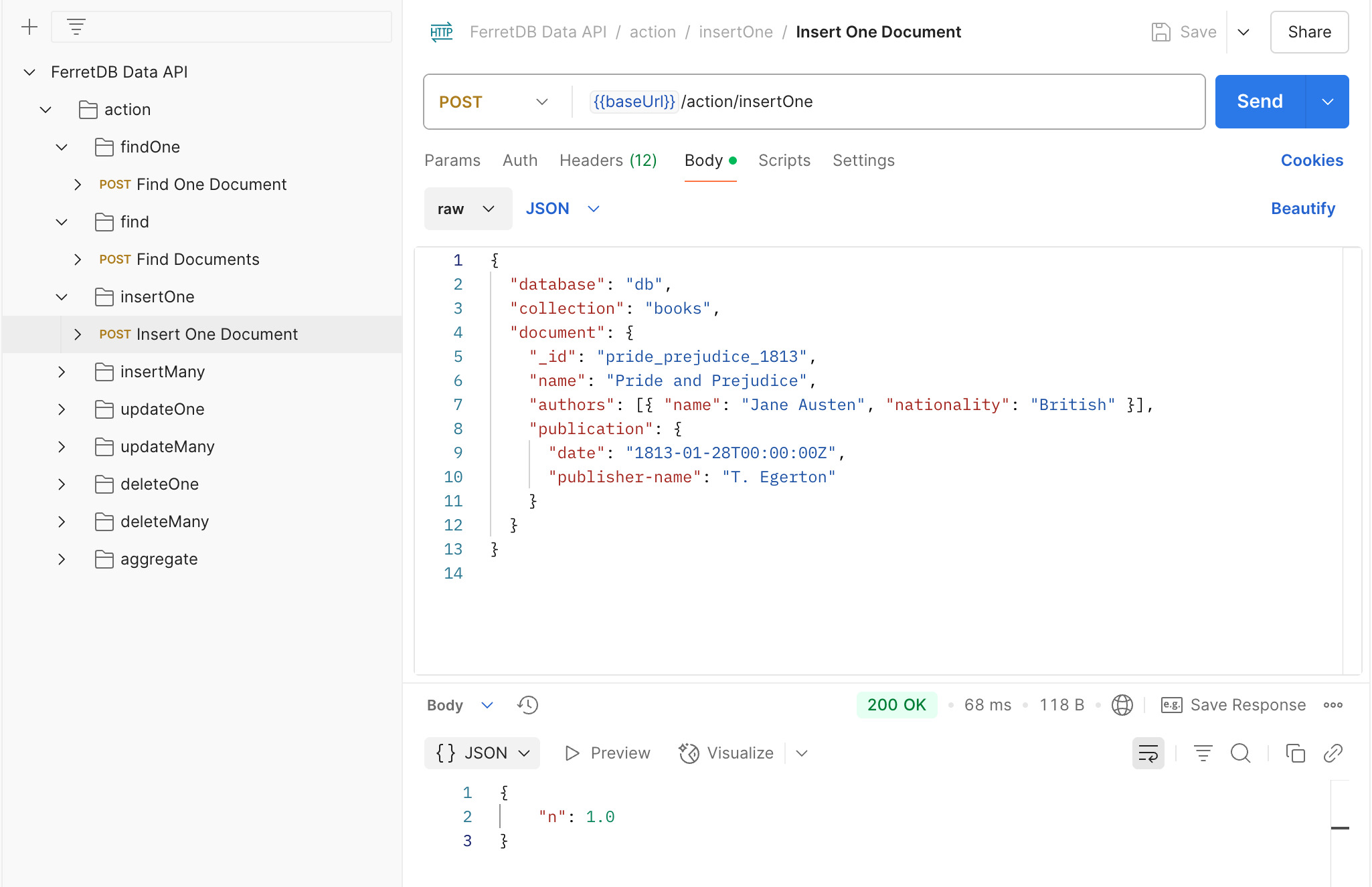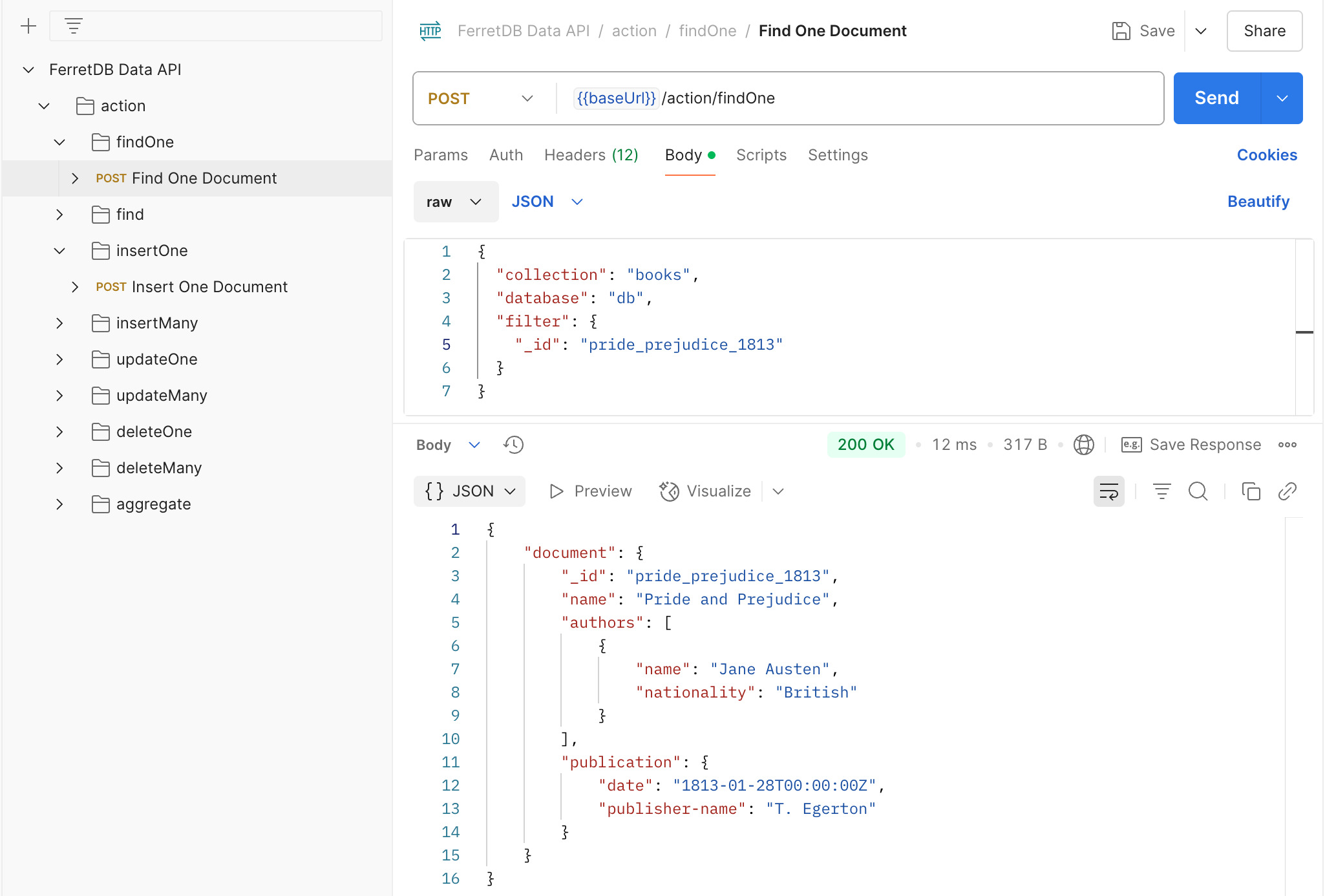Data API
The FerretDB Data API is an open-source alternative to the deprecated MongoDB Atlas Data API. It lets you perform MongoDB-compatible operations via HTTP requests, without needing a MongoDB driver. The Data API is integrated directly into FerretDB – it's not a standalone service.
Enable the Data API
To access the FerretDB Data API, set the environment variable or flag (FERRETDB_LISTEN_DATA_API_ADDR/--listen-data-api-addr) to the desired address and port when starting FerretDB.
Suppose you want to run the Data API on port 8080 and your FerretDB instance is running locally on localhost:27017, set the environment variable or flag as FERRETDB_LISTEN_DATA_API_ADDR=:8080 or --listen-data-api-addr=:8080.
The Data API will be accessible at http://localhost:8080.
Make sure to provide your authentication credential in the request headers or as part of the URL if authentication is enabled.
Using the Data API
The Data API supports standard MongoDB operations like insert, find, update, and delete.
It follows the Data API OpenAPI 3.0 specification defined here.
Insert a document
To insert a single document, use the /action/insertOne endpoint.
curl -X POST http://localhost:8080/action/insertOne \
-H "Content-Type: application/json" \
-u <username>:<password> \
-d '{
"database": "db",
"collection": "books",
"document": {
"_id": "pride_prejudice_1813",
"name": "Pride and Prejudice",
"authors": [{ "name": "Jane Austen", "nationality": "British" }],
"publication": {
"date": "1813-01-28T00:00:00Z",
"publisher-name": "T. Egerton"
}
}
}'
Find a document
Use the /action/findOne endpoint to retrieve documents.
curl -X POST http://localhost:8080/action/findOne \
-H "Content-Type: application/json" \
-u <username>:<password> \
-d '{
"database": "db",
"collection": "books",
"filter": { "_id": "pride_prejudice_1813" }
}'
Update a document
To update a document, use the /action/updateOne endpoint.
curl -X POST http://localhost:8080/action/updateOne \
-H "Content-Type: application/json" \
-u <username>:<password> \
-d '{
"database": "db",
"collection": "books",
"filter": { "_id": "pride_prejudice_1813" },
"update": { "$set": { "isbn": "9780141439518" } }
}'
Delete a document
To delete a document, use the /action/deleteOne endpoint.
curl -X POST http://localhost:8080/action/deleteOne \
-H "Content-Type: application/json" \
-u <username>:<password> \
-d '{
"database": "db",
"collection": "books",
"filter": { "_id": "pride_prejudice_1813" }
}'
Import the Data API Specification into API Clients
The FerretDB Data API is compatible with OpenAPI 3.0, allowing you to import the API specification into various API clients like Postman, Insomnia, or Swagger UI. Below is an example using Postman.
Import the FerretDB Data API specification into Postman using the following URL:
https://raw.githubusercontent.com/FerretDB/FerretDB/refs/tags/v2.7.0/internal/dataapi/api/openapi.json
This will load available endpoints into Postman, as shown below:

Using the same examples from earlier, you can now test the endpoints directly in Postman.
Make sure to set the {{baseURL}} variable to the URL you configured for the Data API (http://localhost:8080 in this case).
You can also set up environment variables in Postman for the <username> and <password> to avoid hardcoding them in the requests.
See the Postman documentation for more information on how to set up environment variables.
Image below shows an example of the insertOne endpoint in Postman:

Image below shows an example of the findOne endpoint in Postman:
